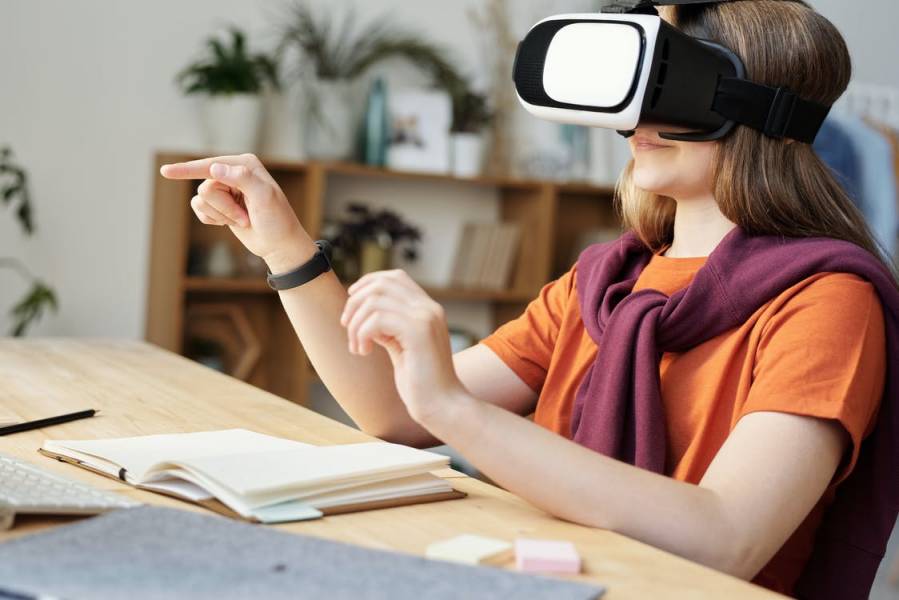Tech Innovations to Make Your Events a Real Success
8 Sept 2022, 5:58 am GMT+1
Technology has definitely changed the event industry sector for good. Whether it’s a music show, a certain workshop, or an art exhibit, technology has been fundamental to making successful events during the Covid-19 pandemic. It enabled creators to adapt to unexpected circumstances and satisfy the demands of the consumers.
It has also brought
new and exciting possibilities
since virtual events have reached a broader audience around the world. Essentially, the new normal has taken shape, and thanks to cutting-edge technology, we can now reimagine the future of hybrid and virtual events. So, with the scope of tech continuously growing, you need to stay on top of the most recent developments to provide your virtual events a competitive advantage. Here are five tech innovation trends you should keep on your radar.
Entering the New Reality With VR and AR
There is a lot of buzz around experimental virtual events. Plus, augmented reality and virtual reality are definitely able to transport participants to a brand new world.
The opportunities are unlimited, with creators utilizing AR and VR for deeply engaging presentations and to stand out among hundreds of exhibitors at trade shows. Charities have also started to revolutionize fundraising by utilizing technology to attract attention to their cause.
Besides offering customizing options comprising a multi-level ticketing system, the stunning visuals, and spatial audio imitate the face-to-face experience so your attendees can feel as if they're in the same place.

Livestream Your Event
As we already mentioned, the pandemic practically kickstarted a huge transition to virtual events. Many event creators are embracing the medium for stuff such as concerts, webinars, and even theatre shows to reach broader audiences while events can’t take place live. And when face-to-face gatherings are an option, you should consider incorporating technology to host a
and get the best of the two worlds. Utilize social media to your advantage when you live stream your event. Post the info before the day. You can invite people to join Facebook Live events and encourage your staff, volunteers, attendees, and vendors to share them on their social media platforms. You can also consider using paid ads to improve your social media reach.
Implement Facial Recognition for Contactless Check-in
Among the recent trends in the event industry is facial recognition software, which is already being utilized at a number of events. It simply creates a ‘smart event’ that enables automated contactless check-in, significantly reducing waiting times and interactions among event staff and attendees. Apart from accelerating things, the software is able to recognize body language and facial expressions to predict the mood of the participants which takes feedback to a completely new level.
Provide Customized Recommendations Using AI
Speaking of AI, it’s more and more being utilized to analyze data and offer personalized suggestions, that can include anything from which discussions you should attend to a new band that truly suits your music taste. Event creators can utilize AI technology to use data from social media platforms including Facebook and LinkedIn to create tailor-made suggestions for every event attendee. For instance, who they should meet, which presentation can be specifically useful for their occupation, or which speaker they would really enjoy hearing. If all this seems a little techy, you shouldn’t despair. The fastest way to get up to speed is to utilize an event application with an AI plug-in.
Radio Frequency Identification Makes Things Faster
Radio Frequency Identification
continually streamlines the attendee experience by substituting tickets and physical payments for face-to-face events. The RFID chip is very tiny and it can fit inside participants' bracelets or badges, and since it’s scannable, it minimizes queuing time. It can also be utilized for non-cash payments on-site at events like music shows or food festivals. In this post-pandemic period, RFID is advantageous for speeding up one-on-one interactions and it truly deserves consideration for socially distanced events. Besides, by utilizing RFID technology for your events, you’ll be able to track the movements and overall behavior of participants for precious insight into venue layout.
Final Words
Tech innovations for the events sector are constantly transforming, providing event creators a steady source of exciting possibilities. From much-loved staples such as apps and project management tools to exciting new technology like AI. Therefore, it’s worth staying on top of how technology can make your events a real success and maintain attendees hooked.
Share this
previous
Types of B2B marketplaces
next
Jim Conley At ‘Living With Sunny’: “The modern lifestyle is leading to lifestyle diseases… we should be addressing them, right now”.
